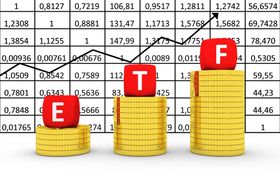What Is the Tax Rate for Short-Term vs. Long-Term Investments
Read how to gauge your anticipated tax rate whether you're trading/investing short or long term. Tax policy encourages you to hold assets - capital gains for a year or more.
Published May 24, 2021
Capital gains are the profits from the sale of an asset - shares of stock, a piece of land, a business and generally are considered taxable income. How much these gains are taxed depends a lot on how long you held the asset before selling.
A short-term capital gain results from the sale of an asset owned for one year or less. While long-term capital gains are generally taxed at a more favorable rate than salary or wages, gains that are classified as short-term do not benefit from any special tax rates. They are subject to taxation as ordinary income.
As regular taxable income, short-term gains are subject to whichever tax bracket you fall under. There are currently seven federal tax brackets in the U.S., with rates ranging from 10% up to 37%.
Long-term capital gains tax is a tax on profits from the sale of an asset held for more than a year. The long-term capital gains tax rate is 0%, 15%, or 20% depending on your taxable income and filing status. The numbers can change from year to year. Most of the time, they are lower than short-term capital gains tax rates.
The tax on a long-term capital gain is almost always lower than if the same asset were sold in less than a year; most taxpayers don't have to pay the highest long-term rate. Tax policy encourages you to hold assets - capital gains for a year or more.
Related Articles

How to Identify Different Types of Stock Market Trends
Sofia Thai
April 27, 2021

The Best Trading Platforms for Beginners and Professionals
Sofia Thai
April 23, 2021

How to Identify Good Long-Term ETFs to Invest In
Filip Dimkovski
May 19, 2021

Long Term Microsoft Stock Investment: The Pros and Cons
Andrew Moran
December 23, 2024

The Future of Crypto Regulation with Trump: A Critical Turning Point for the Digital Asset Industry
Adam Walker
January 15, 2025
Related Posts
Filip Dimkovski
Am I Too Old to Start Investing In ETFs?
Filip Dimkovski
How to Identify Good Long-Term ETFs to Invest In
Filip Dimkovski
